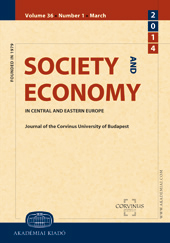The German approach to cost-effectiveness analysis in health care
The German approach to cost-effectiveness analysis in health care
Author(s): Noémi V. Hevér, Orsolya BaloghSubject(s): National Economy, Social development, Management and complex organizations, Health and medicine and law, Economic development
Published by: Akadémiai Kiadó
Keywords: health technology assessment; IQWiG; DAHTA; Germany; Hungary;
Summary/Abstract: Health technology assessment (HTA) is a dynamic, rapidly evolving process embracing different types of assessment that inform decisions about the value (i.e., benefits, risks and costs) of new and existing technologies. The role of HTA is to support health policy decision-making and financing in health care. In this paper we describe and analyse the German approach to cost-effectiveness analysis in health care and HTA. Two institutes operate as HTA agencies, namely the German Agency of Health Technology Assessment (DAHTA) and the Institute for Quality and Efficiency in Health Care (IQWiG). The operational principles of IQWiG are somewhat different from the rules governing HTA organizations in other countries. The efficiency frontier approach, applying an indication- specific threshold and neglecting the concept of quality-adjusted life year (QALY) are the most important differences. Previously, health gains were in focus and assessment was based exclusively on such benefits, but in 2010, cost-effectiveness analysis was introduced as an integral part of the HTA process at IQWiG. A brief comparison is also made with the HTA systems in Central-Eastern- European countries, among them concentrating mainly on Hungary.
Journal: Society and Economy. In Central and Eastern Europe ǀ Journal of the Corvinus University of Budapest
- Issue Year: 35/2013
- Issue No: 4
- Page Range: 551-572
- Page Count: 22
- Language: English

